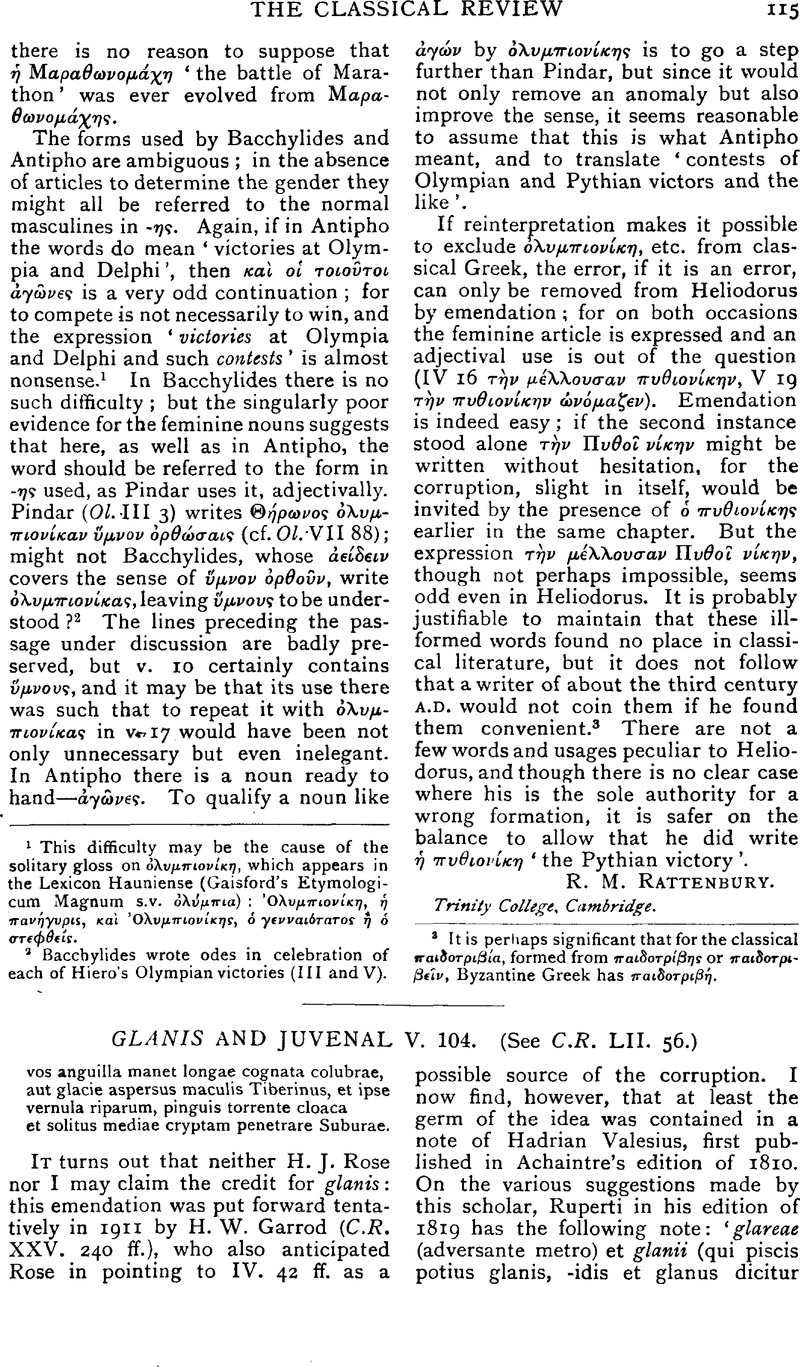No CrossRef data available.
Published online by Cambridge University Press: 27 October 2009

page 116 note 1 Garrod accepts Galen's evidence and in writing ‘Tiberinus as a proper noun is unsupported from any Latin writer…’ was apparently unaware of Heraeus' interpretation of Hist. Aug. XVII. 17. 5. My case, however, rests on the imþossibility of Tiberinus; hence I was concerned to show that Galen's evidence is derivative. But if Tiberinus was possible as a fish name, then the point about the scholiast's nomen þiscis, which both Garrod and Rose have made, loses its cogency.
page 116 note 2 Garrod writes ‘glanis, a kind of shad’, a word on which the Concise Oxford Dictionary has ‘kinds of anadromous deep-bodied fish’.
page 118 note 1 For a full account see Theodore Gill, ‘Parental Care among Freshwater Fishes’, Smithsonian Inst. Proc., 1895; ‘The Remarkable Story of a Greek Fish, the Glanis’, ibid. 1907.